President Josh Sprague opened the session with a welcome to all members of the number 1 club in the universe, reminded us of the origins of Halloween from the Celtics in Ireland 2,000 years ago, provided an impactful summary of the Rotarian Code of Ethics, and the importance of working for the benefit of others. Visitors, including the president and members of Interact, were introduced. Three individuals gave their classification talks: Sarah Line, Mike Martiny and Robb Breding. Their presentations gave us the moral compass for the day to remind us why we are Rotarians.

Sarah Line, Classification Talk
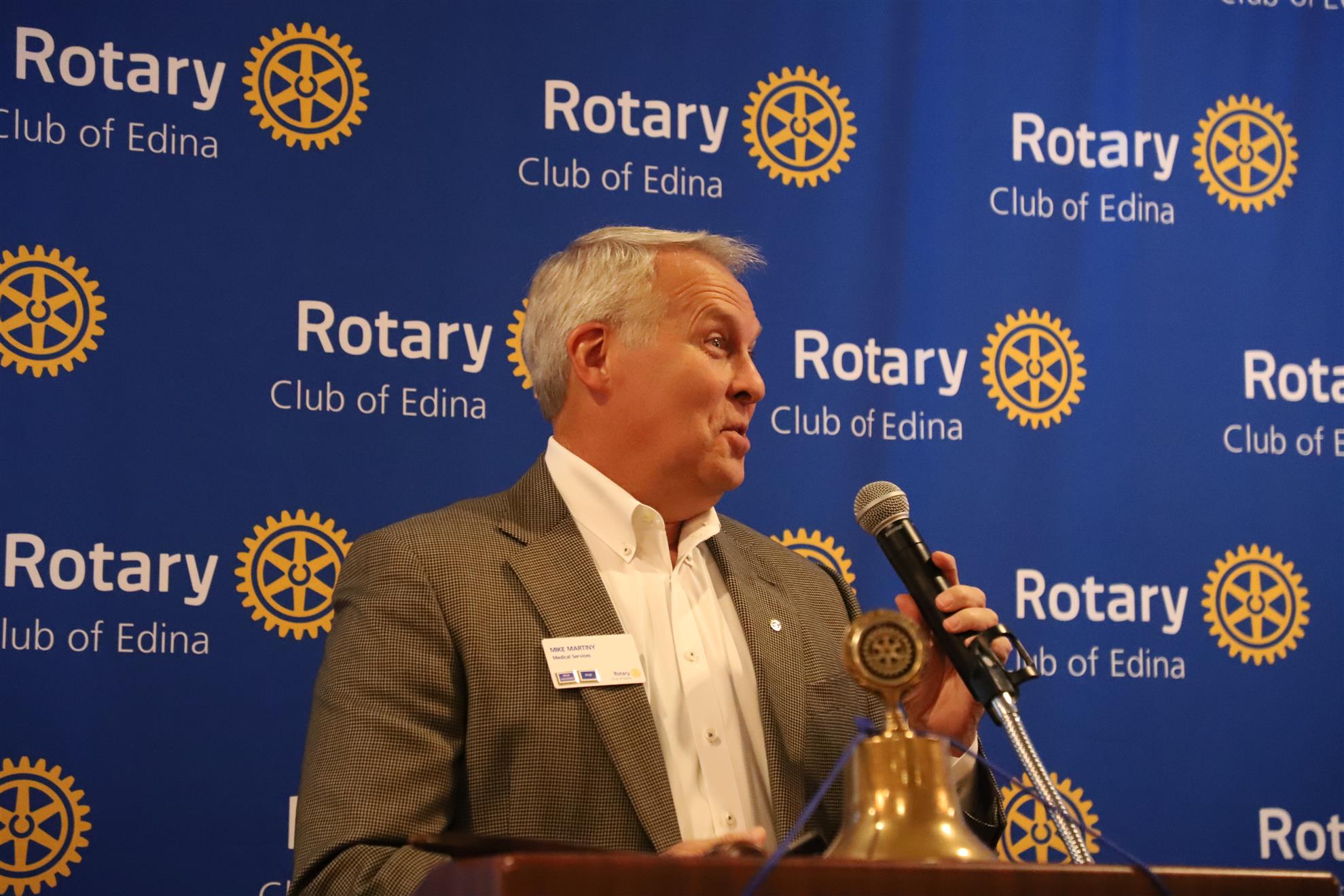
Mike Martiny, Classification Talk
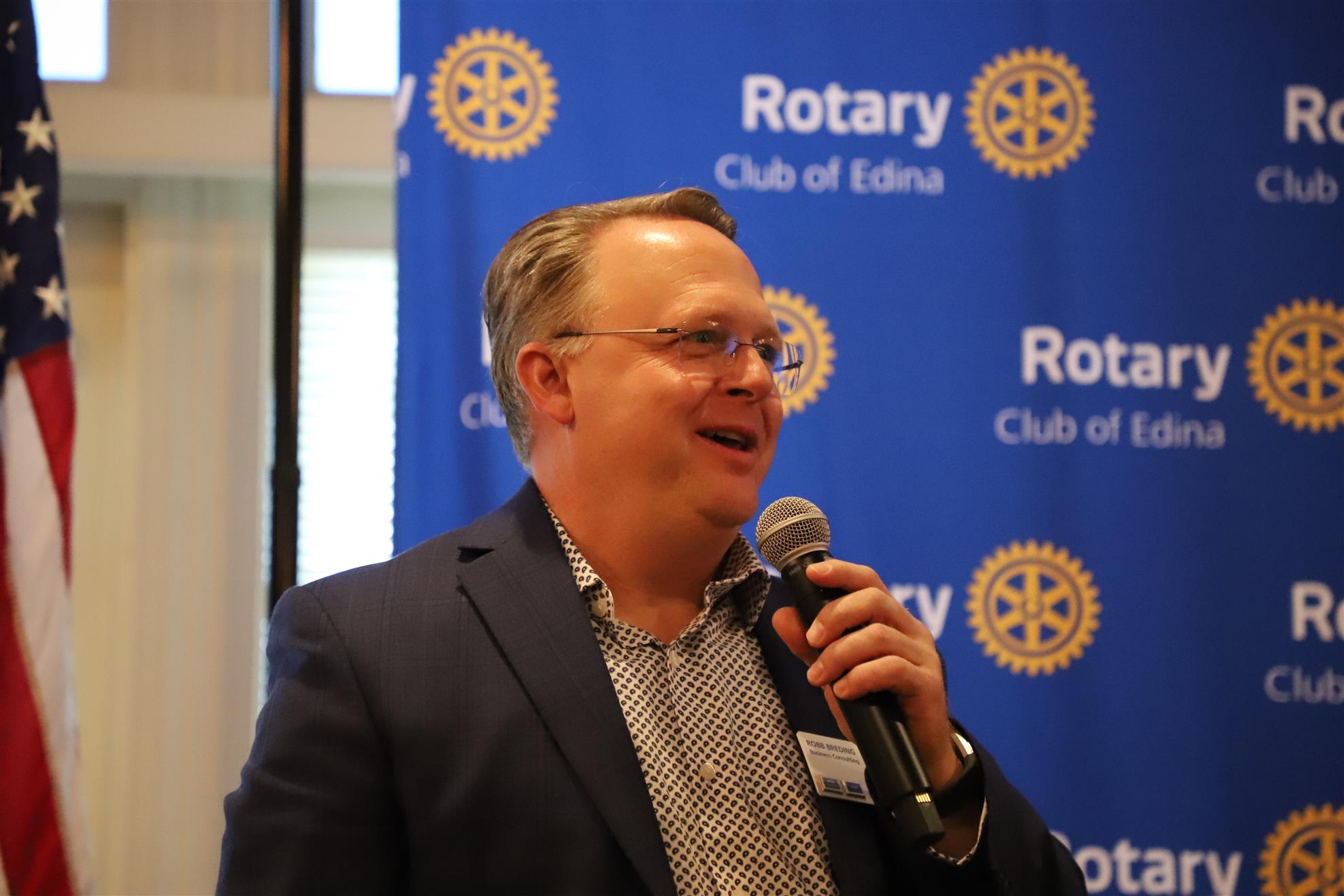
Robb Breding, Classification Talk
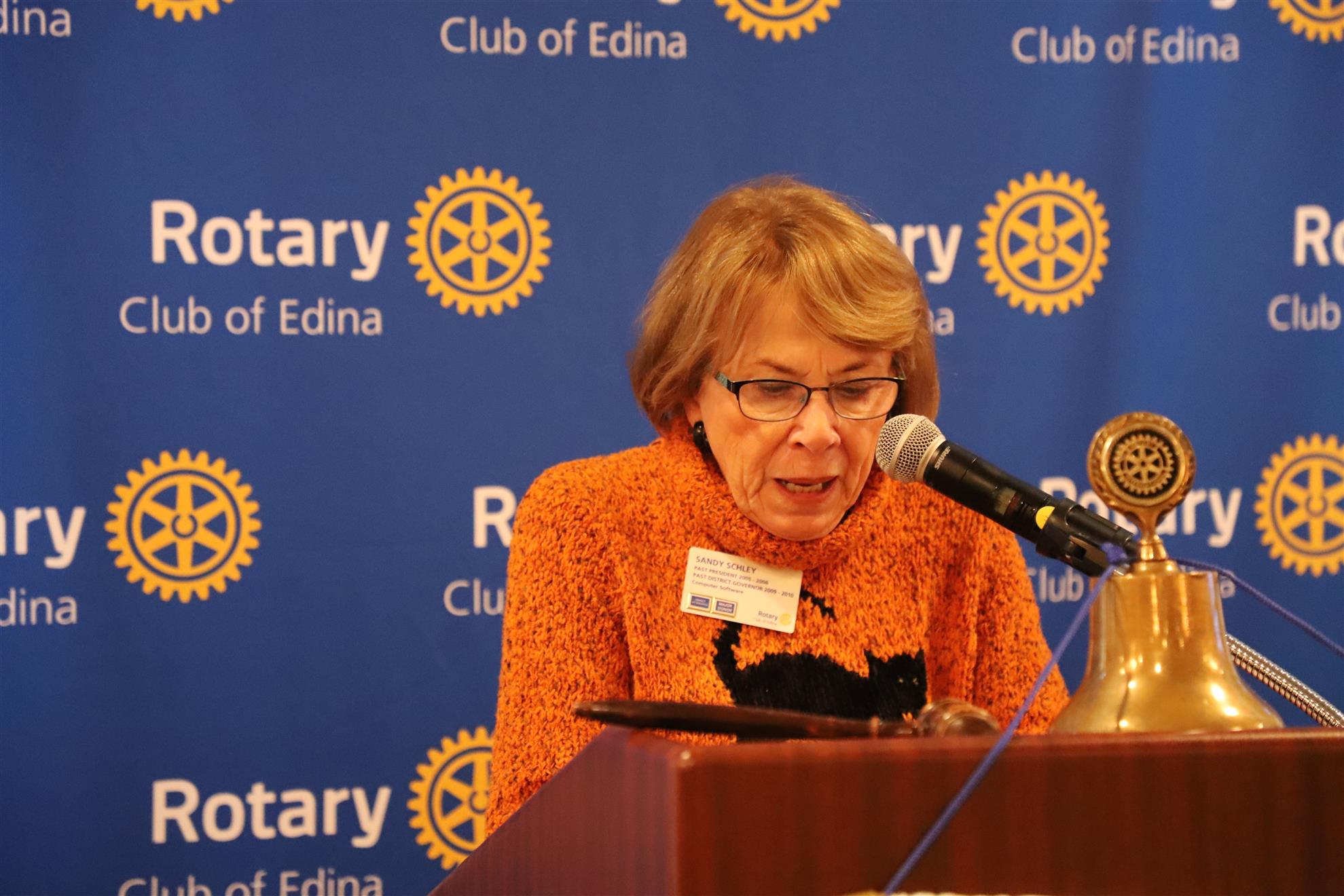
Sandy Schley introduced the speaker, Janie Colford, Board Chair of the Steve Rummler Hope Network. The network was founded by William and Judy Rummler, the mother and father of Steve Rummler, who died as a result of an overdose. The purpose of the network is to raise awareness, educate prescribers, and prevent overdose. It has been instrumental in providing advocacy at the local, state and national level regarding the effects to society and family from opioid, heroin, and more recently, fentanyl addiction. On the national level, the executive director, Lexi Reed Holton, has testified in the hearings related to investigations to hold the pharmaceutical companies responsible for the opioid crisis. On a local level, she shared that the largest group of Emergency Room admissions for drug overdoses are 25-34 years old, of which the mortality rate is greatest among the Native Americans.
Janie became involved in the organization as a result of her son’s death from an overdose ,and her nephew’s death from a heroin overdose, when neither his mother nor the Sherriff had Naloxone (Narcan) available to counteract with the heroin when he was initially found. Although the First Responders had Naloxone when they arrived after the Sheriff, and used the Naloxone in an effort to block or reverse the effect of the heroin, especially decreased breathing, they were too late on the scene to prevent brain damage and his ultimate death. If her nephew’s mother or the Sherriff would have had the Naloxone when they found him, it is believed his death could have been prevented. In an effort to help others in the same situation, she searched and found the Network and became an advocate for those in need and their families.
The Network is funded by individual and corporate donations and, as a result of the most recent Opioid Epidemic Response Bill which was to provide sustainable funding to fight the opioid crisis, is now participating with the advisory council responsible to analyze and determine how the $20 million annual funding will be used. Part of the discussions includes helping children who are displaced because of their parents’ drug related issues.
In 2018, as a result of the Network’s efforts, they distributed almost 11,000 Naloxone kits, representing approximately 33,000 dosages. They are also working on an online certification program to certify individuals, especially out-state, to safely use the Naloxone, which allows them to obtain the kits. This on-line program was funded by Rotary and will be rolled out next year.
Janie became involved in the organization as a result of her son’s death from an overdose ,and her nephew’s death from a heroin overdose, when neither his mother nor the Sherriff had Naloxone (Narcan) available to counteract with the heroin when he was initially found. Although the First Responders had Naloxone when they arrived after the Sheriff, and used the Naloxone in an effort to block or reverse the effect of the heroin, especially decreased breathing, they were too late on the scene to prevent brain damage and his ultimate death. If her nephew’s mother or the Sherriff would have had the Naloxone when they found him, it is believed his death could have been prevented. In an effort to help others in the same situation, she searched and found the Network and became an advocate for those in need and their families.
The Network is funded by individual and corporate donations and, as a result of the most recent Opioid Epidemic Response Bill which was to provide sustainable funding to fight the opioid crisis, is now participating with the advisory council responsible to analyze and determine how the $20 million annual funding will be used. Part of the discussions includes helping children who are displaced because of their parents’ drug related issues.
In 2018, as a result of the Network’s efforts, they distributed almost 11,000 Naloxone kits, representing approximately 33,000 dosages. They are also working on an online certification program to certify individuals, especially out-state, to safely use the Naloxone, which allows them to obtain the kits. This on-line program was funded by Rotary and will be rolled out next year.
It was a sobering but hopeful presentation, knowing that people like Janie and organizations like the Network are advocating for those in need. Thank you to Janie for reminding us that hope exists in the helping of others.
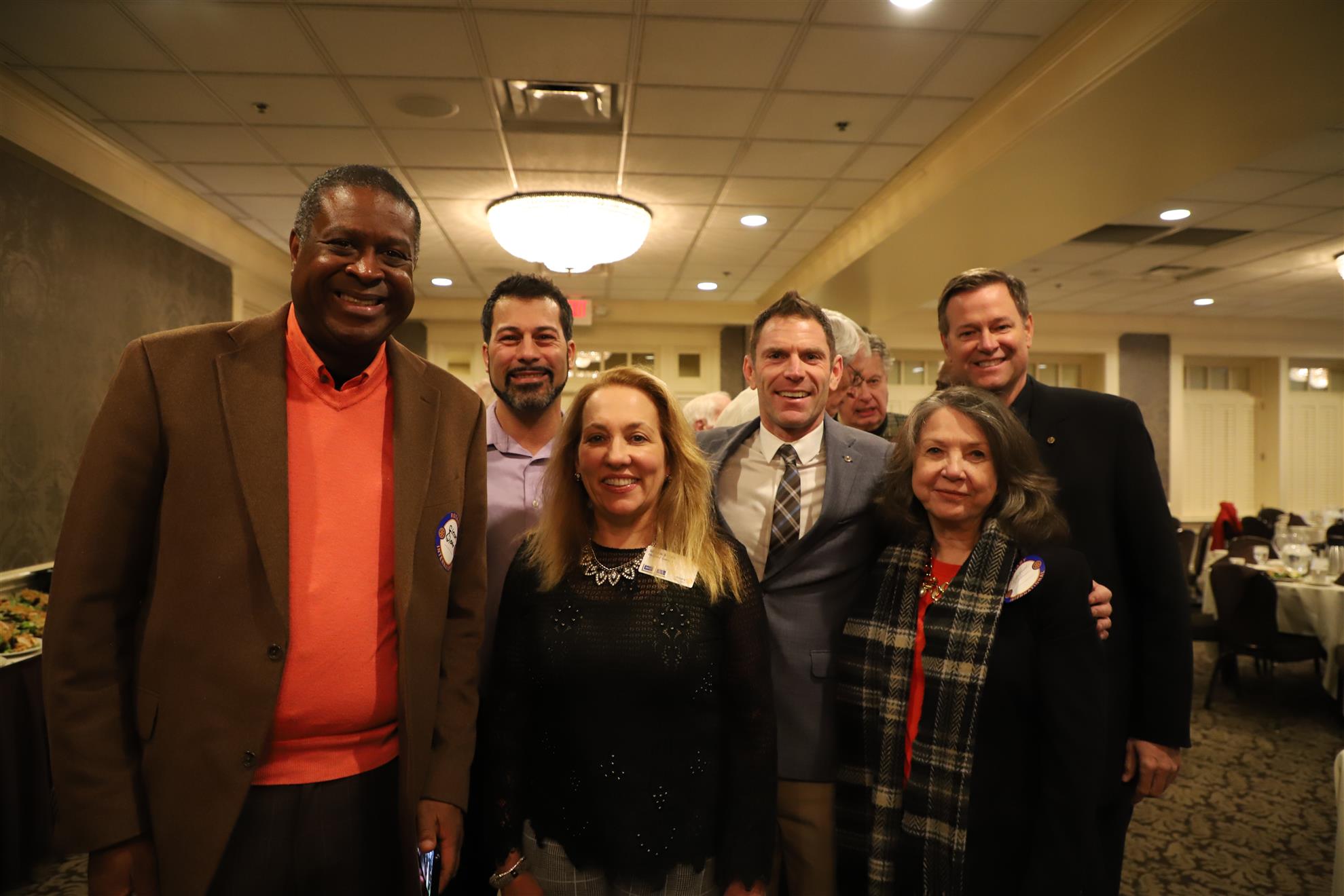
Great group of Rotarians working for the benefit of others.
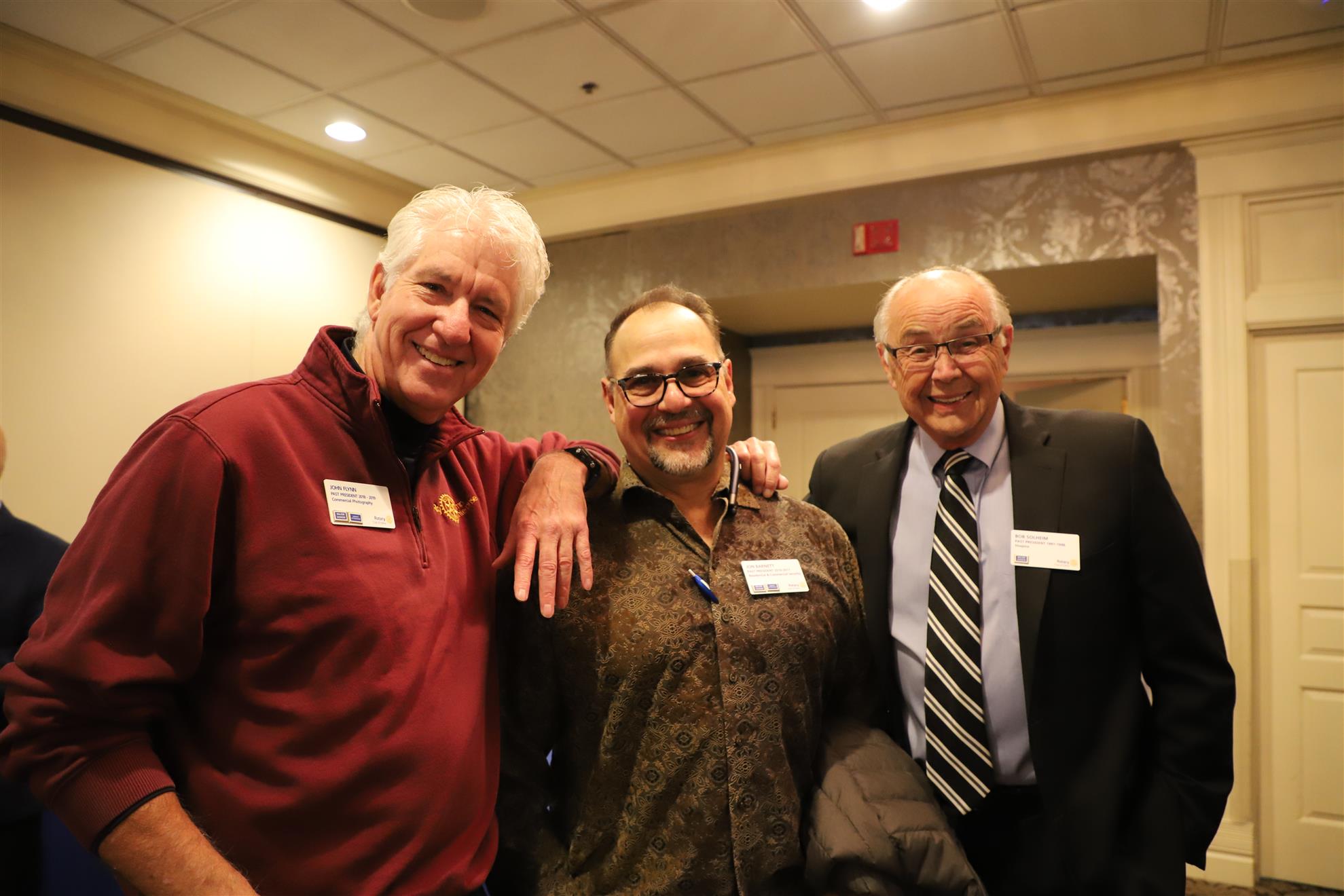
John Flynn, Jon Barnett and Bob Solheim
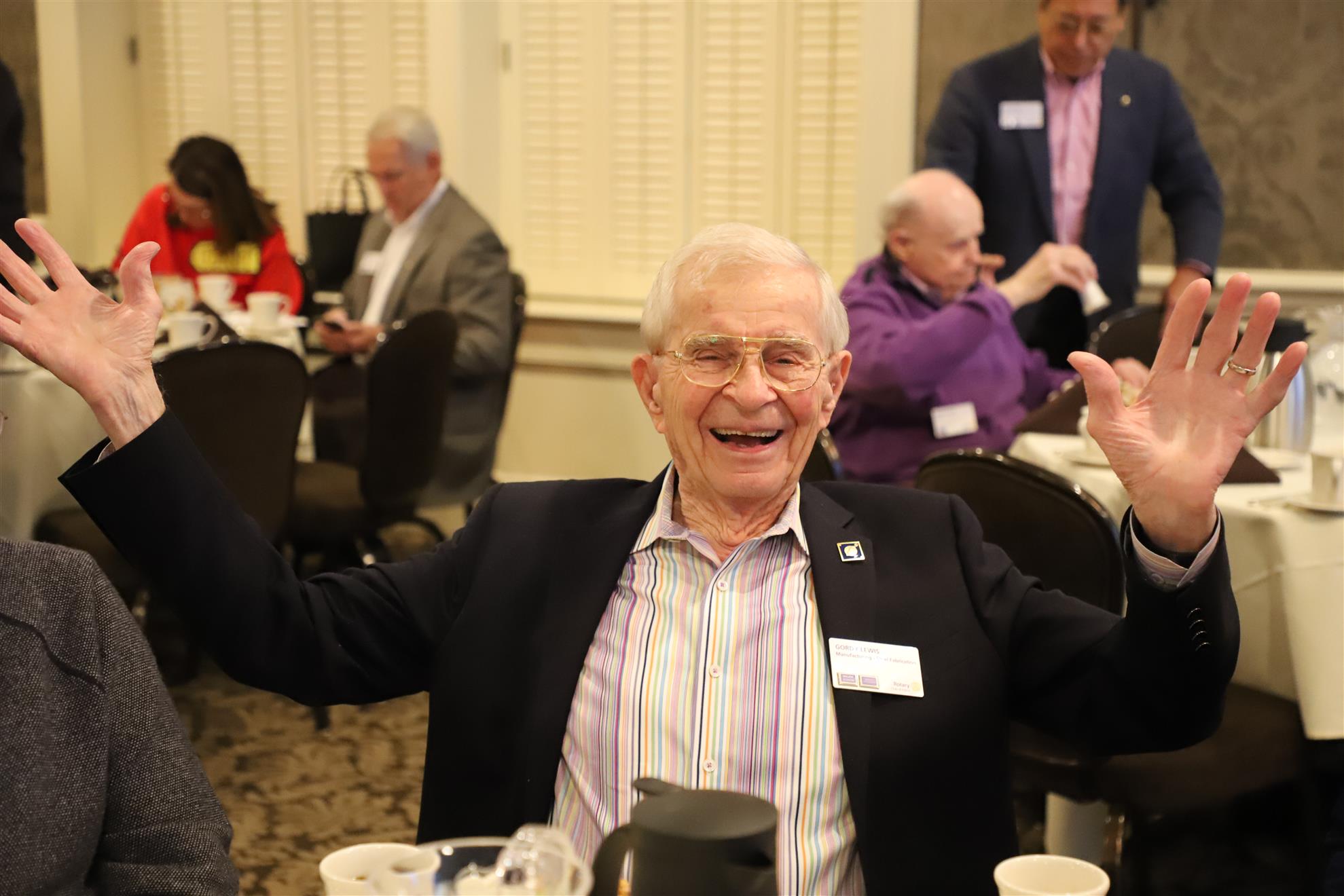
Wow, Gordy Lewis made it to the meeting! Oh wait, he always makes it!
.JPG)
Don't forget your socks! Donation Box will be here!